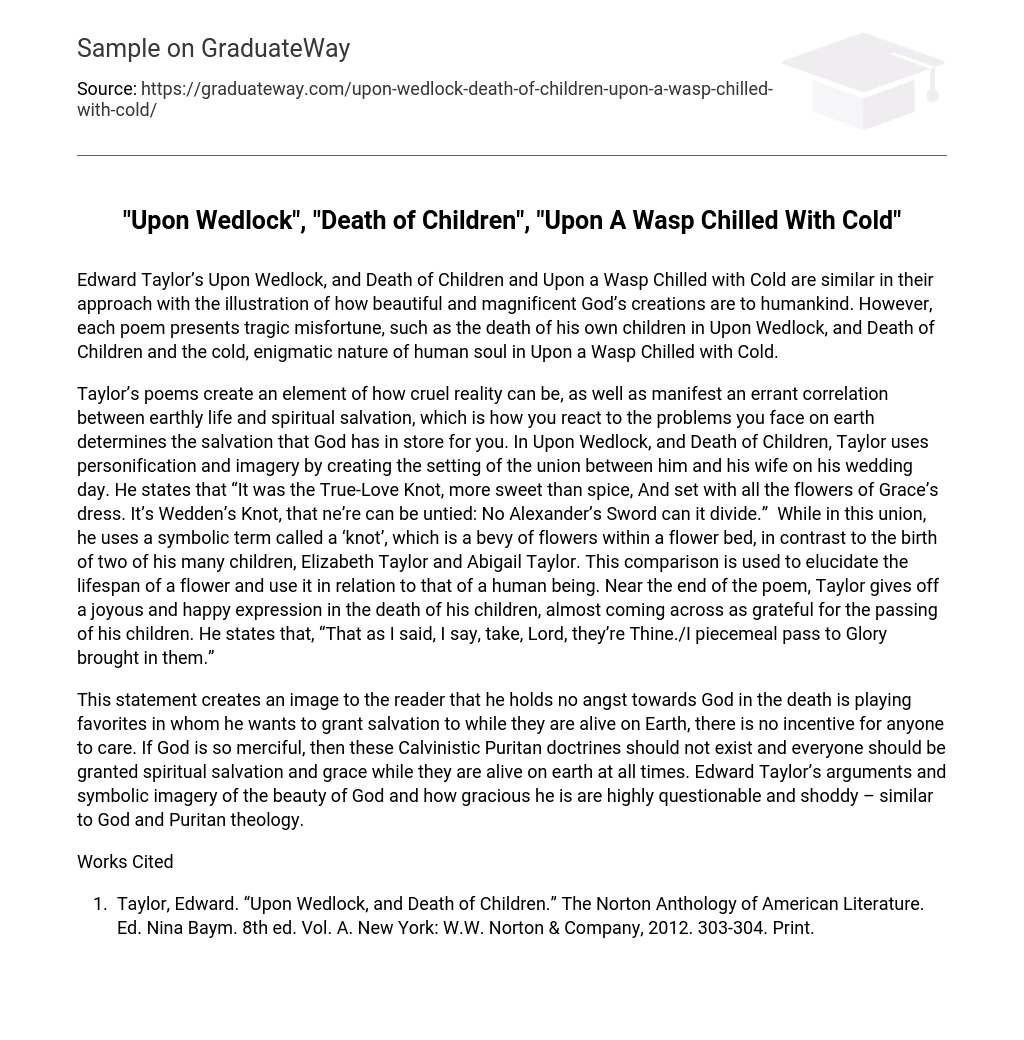Edward Taylor’s poems “Upon Wedlock, and Death of Children” and “Upon a Wasp Chilled with Cold” share a common theme of glorifying God’s creations and emphasizing their beauty. However, both poems also showcase moments of tragedy, such as the loss of Taylor’s own children in “Upon Wedlock, and Death of Children” and the mysterious coldness of the human soul in “Upon a Wasp Chilled with Cold”.
Taylor’s poems explore the harsh realities of life and the connection between earthly existence and spiritual salvation. He emphasizes that how one responds to challenges on earth determines their ultimate salvation from God. In “Upon Wedlock, and Death of Children,” Taylor employs personification and imagery to describe his wedding day and the birth of his children. He uses the concept of a “knot” to symbolize his union with his wife, a bond that cannot be broken. In contrast, he compares the fleeting lifespan of flowers to that of humans, highlighting the transient nature of life. Surprisingly, towards the end of the poem, Taylor expresses a sense of joy and gratitude for the death of his children, considering it as a passage to glory.
The passage suggests that the reader perceives a lack of animosity towards God in the idea that He shows favoritism in granting salvation to individuals while they are alive on Earth. This leads to a lack of motivation for anyone to care. If God is truly merciful, then doctrines like those of Calvinistic Puritanism should not exist, and spiritual salvation and grace should be granted to everyone at all times during their earthly existence. Edward Taylor’s arguments and symbolic representations of God’s beauty and graciousness come across as dubious and unreliable, much like the concepts of God and Puritan theology.
Works Cited
- Taylor, Edward. “Upon Wedlock, and Death of Children.” The Norton Anthology of American Literature. Ed. Nina Baym. 8th ed. Vol. A. New York: W.W. Norton & Company, 2012. 303-304. Print.





